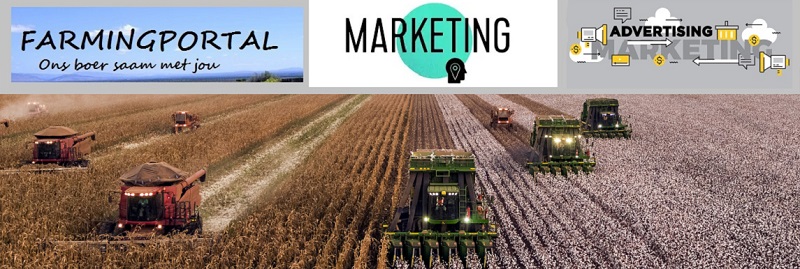Robben Island and this majestic Cape peninsula is also symbolic of a major upheaval that the mercantile classes of Europe in cahoots with their kings and queens, popes, bishops and priests unleashed on just about every continent and most other people of the world from the 15th century.
With their ships, guns, germs and God, they came, enslaved, killed or assimilated the indigenous people they found. Pegged out land. Took it. Dished it out as patronage. Extracted from it. Protected it with their soldiers and laws and stayed. For free.
When they could not enslave the local people, they captured people from elsewhere and shipped them across the ocean to do the hard labour of tilling, planting and building the colony. Some kept the land, developed it and sold it on for a profit. Creating generational wealth for their next of kin. Others left. Seeking new lands to peg and own. New indigenous people to conquer. European colonisation was arguably the biggest land grab our planet had ever experienced. The biggest land expropriation without compensation.
Obviously not every European was a thief, gold digger, prospector, land grabber or genocidal white supremacist who believed only the melanin-deficient were ordained to lord it over the Earth and all its people. Many Europeans were impoverished, landless, homeless evictees. Themselves veritable slaves of inhumane industrialisation-era overlords. Some were incarcerated for petty crimes like stealing a loaf of bread and shipped off to penal colonies such as New South Wales in Australia. Others were teachers, thinkers, dreamers, adventurers, craftsmen and women. Looking for a better life.
I, dear reader, am the full-blown embodiment of the meeting of the beneficiaries of colonisation and the colonised. In my body swims the DNA strands of the couplings of European settlers, Asian slaves, indentured labourers and indigenous African pastoralists and nomads.
 Signing of the Expropriation Act and Land Claims
Signing of the Expropriation Act and Land Claims
So here’s the thing. The past is thankfully the past. But it lives on in me. In us. In the inequality of our country. In the inequality of rich and poor nations of the world. In every cell of my body. I am the reconciled meeting in memory of the past and the present. I am the living proof of the dance of diversity and inclusion. Does that make me a woke joke? Or am I part of the possibility of hope that exists in our country and world, however much the merchants of hate and greed want to tear it down.
I get deeply sad and angry when I see people dripping with power, wealth and privilege perpetuating the same glib prejudices of the past. Those who still believe that their skin colour, accident of birth, wealth, culture, language, gender, religion, tribe or nationality make them special, superior to everyone else.
The US of A’s demographics are a reflection of centuries of European colonisation. Its 340 million population consists of a majority of European migrants (75%), 19% migrants of Latino origin, 13% of African origin and only 1.3 % indigenous Native Americans. Most of the African Americans are descendants of slaves, brought by the Europeans to work on cotton plantations. Indigenous Native American people of the US were decimated by the guns and germs of their first encounters with European colonisers. Funny that a nation of migrants from all over the world voted for a president who is hell-bent on evicting all new migrants, but that’s the irony and hypocrisy of the US, a country I am glad I don’t live in.
Our country was colonised by Europeans in the 1600s. Unlike in the US, the descendants of Europeans in South Africa are a minority, 7.3% of a population of more than 60 million.
But white commercial farmers own 61 million ha – 78% of the farmland that comes with private title deeds or 50% of all land in South Africa. It’s a legacy of our past that lives on today.
Slowly, way too slowly for many, black South African people whose land was expropriated have been able to reclaim it through our Land Claims process. It is estimated by Johann Kirsten, director of the Bureau for Economic Research at Stellenbosch University, and Wandile Sihlobo, chief Economist of the Agricultural Business Chamber of South Africa, that 24% of all farmland has been redistributed or land rights have been restored – close to government’s 30% target, which could be reached by 2030.
So despite the fear-mongering flying around like a new strain of Covid, our government is not going to forcibly take away the land owned by productive white farmers. And our property rights are constitutionally protected. No one is going to invade my little unit in a Pretoria East complex and take it away from my family.
Yet after President Cyril Ramaphosa signed the Expropriation Bill we have some among us – well aware of our history and the facts of land ownership in our country – crying wolf and noisily agreeing with US President Donald Trump and his South African migrant sidekick Elon Musk, that South Africa has “openly racist ownership laws”, when the facts are that black South Africans were dispossessed of their land by openly racist laws in the 1913 Natives Land Act and for centuries before when the first Europeans landed on the shores of the Cape.
South Africa still has a long way to go to rectify the injustices of our colonial past. But rectify we must. We are all South African. We all have a part to play in fixing what was broken in the past and in the present. The noise of name-calling, race-baiting and echoing the ignorance coming from the rich guys across the Atlantic pond is not going to get us anywhere. What will get us somewhere better is working to fulfil the egalitarian dreams of Nelson Mandela and others who chopped rocks on Robben Island.
DISCLAIMER
The views and opinions expressed in this program are those of the speakers and do not necessarily reflect the views or positions of any entities they represent. The information contained in this website is for general information purposes only. The information is provided by [business name] and while we endeavour to keep the information up to date and correct, we make no representations or warranties of any kind, express or implied, about the completeness, accuracy, reliability, suitability or availability with respect to the website or the information, products, services, or related graphics contained on the website for any purpose. Any reliance you place on such information is therefore strictly at your own risk.















